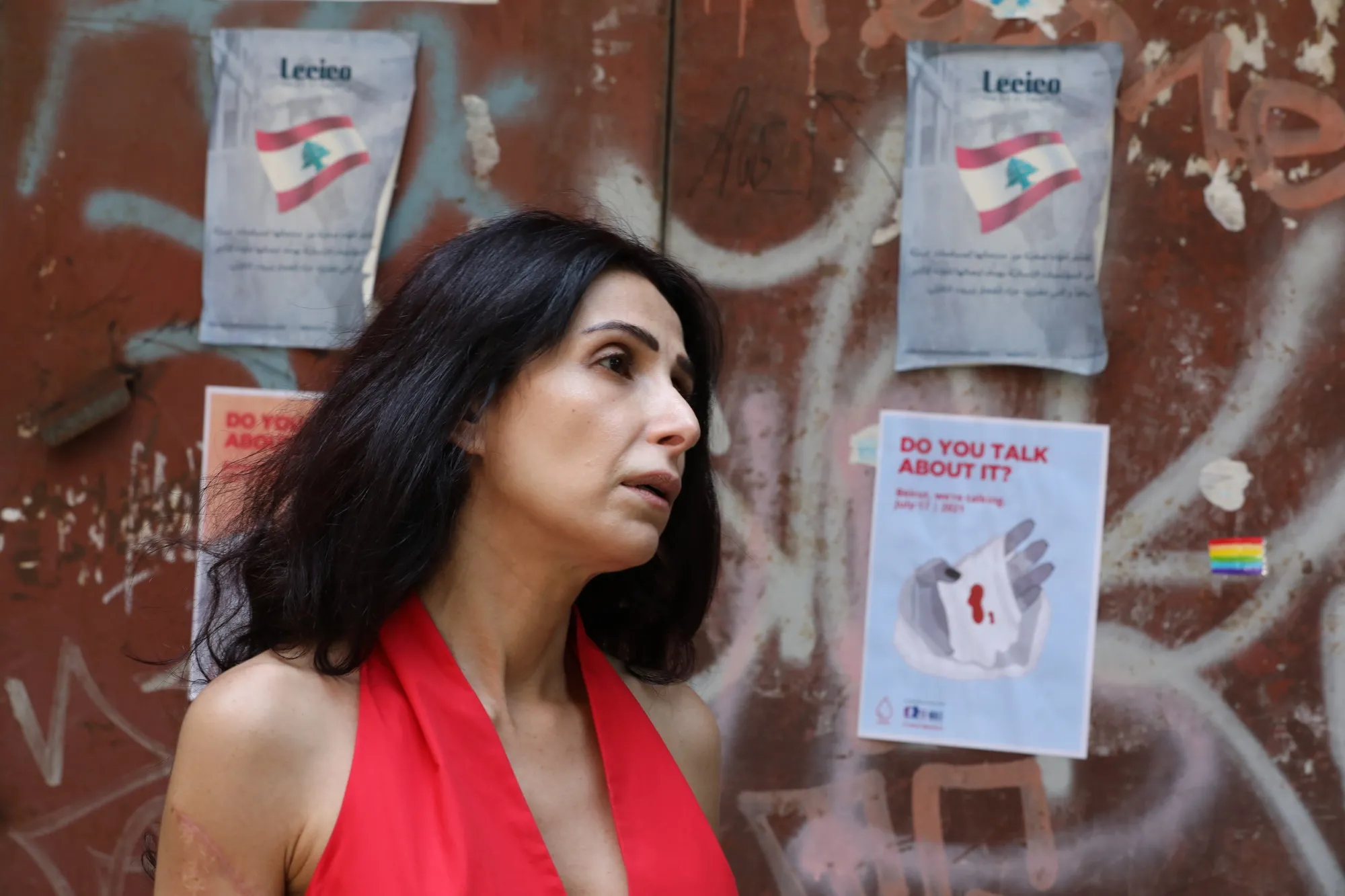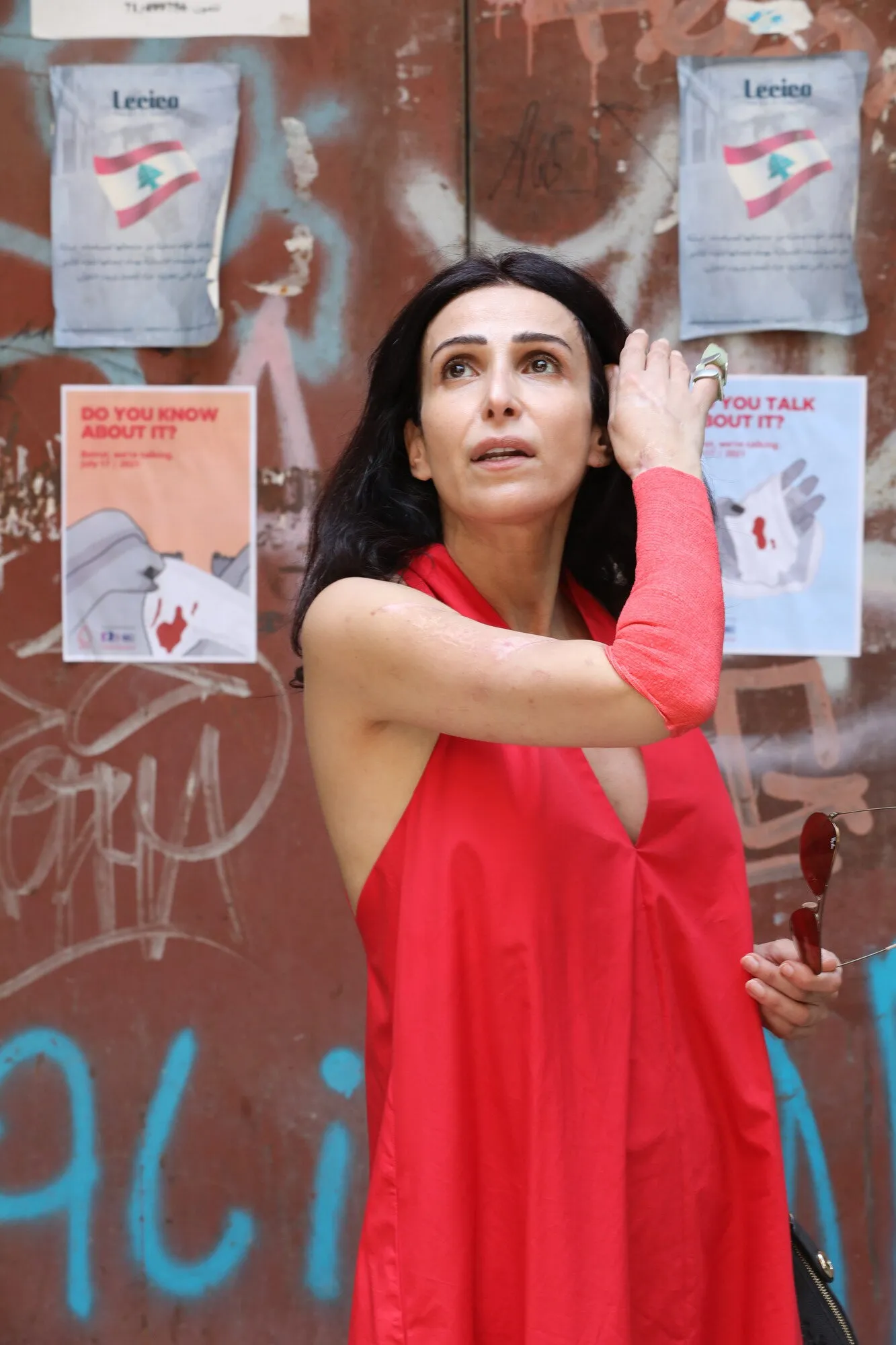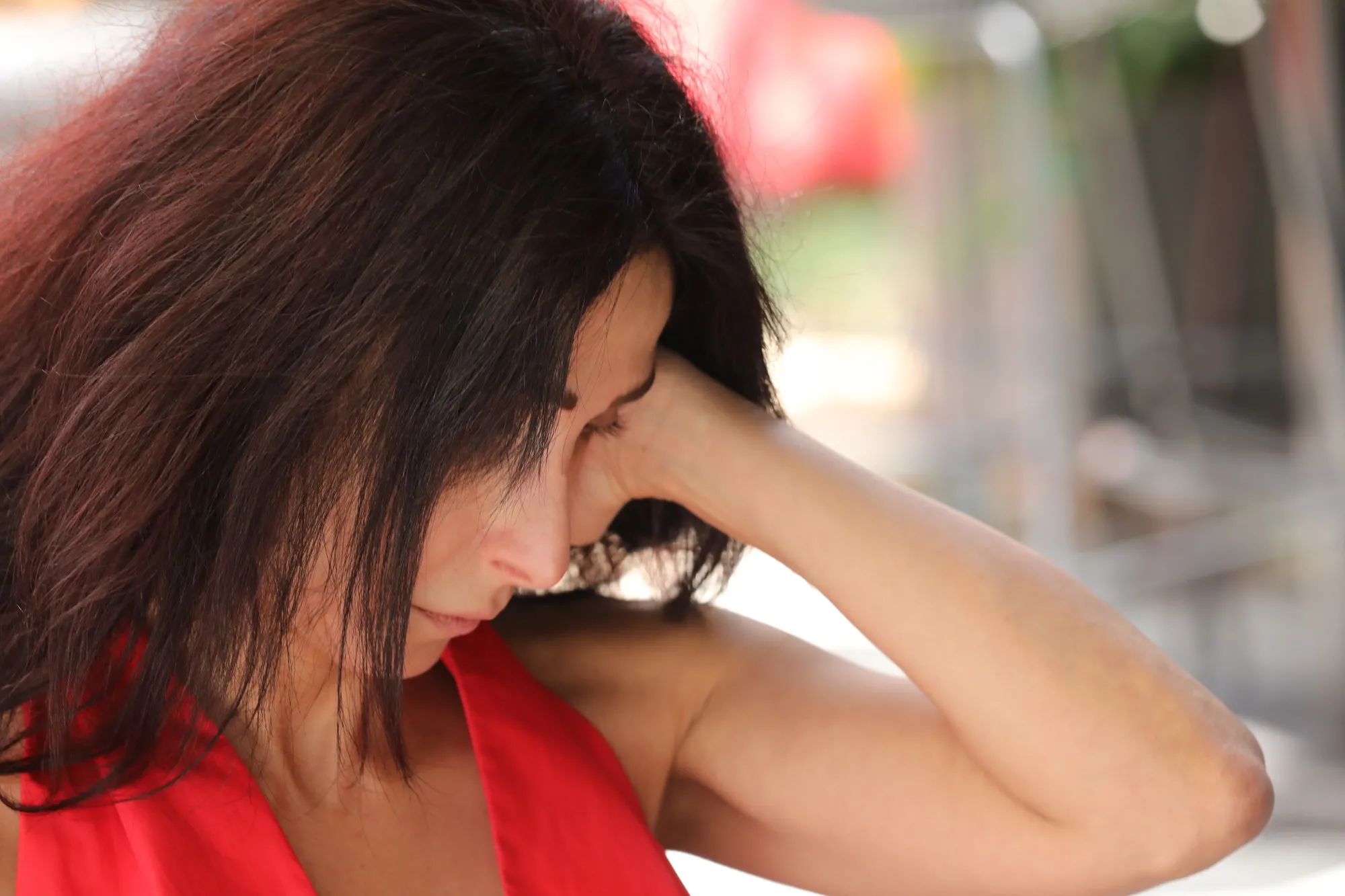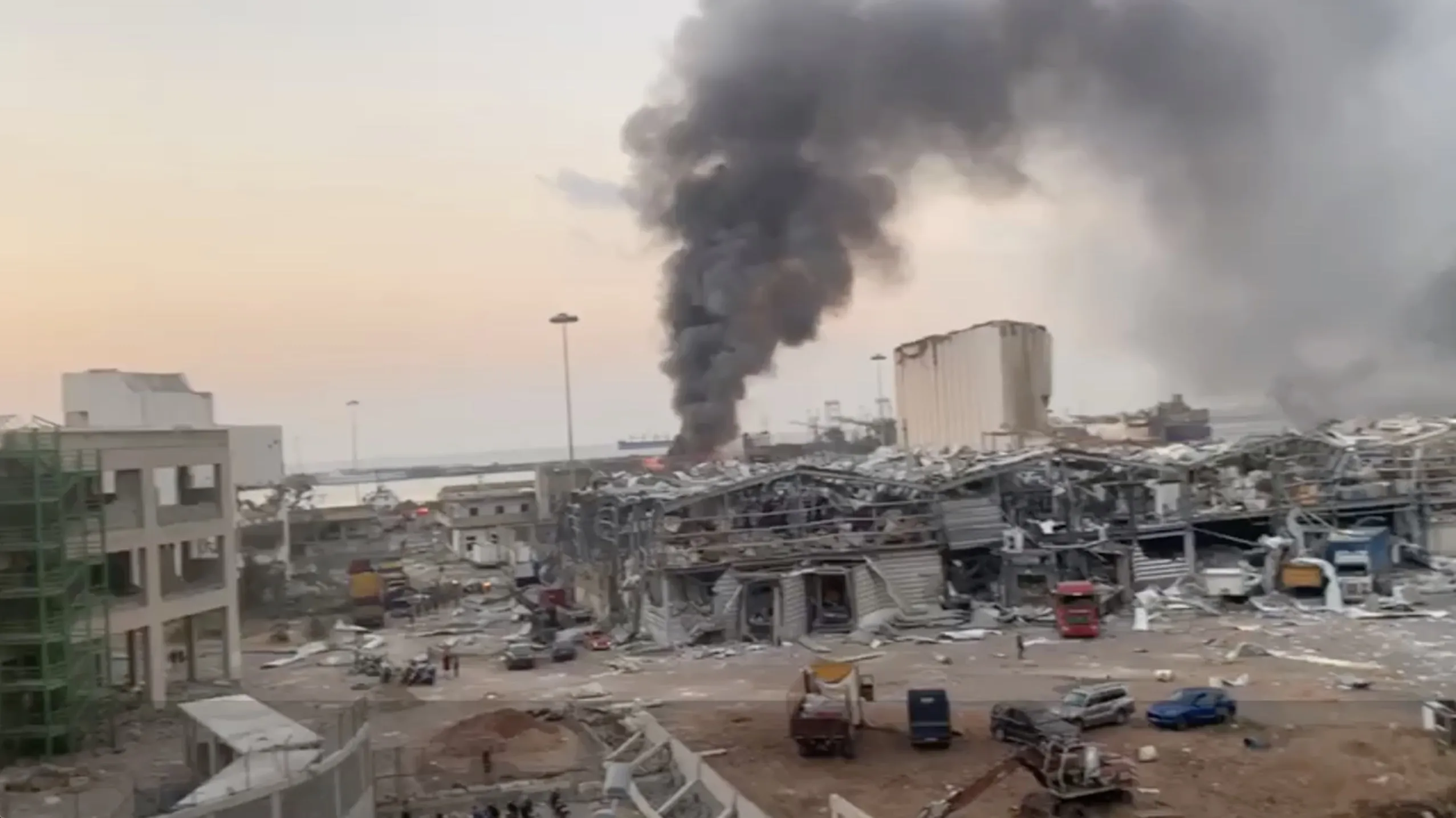Thousands of injured overwhelmed Beirut’s hospitals, which were already at capacity due to COVID-19. Medics had to treat people wherever they could – in hotels, car parks, and veterinary clinics. Ritta suffered serious injuries to her arm and foot and has undergone six surgeries since August 4, including bone and fat transplants.
“I still have at least three surgeries left, for one of my toes, my arm, and my right hand. I can barely write,” she says, slowly moving the fingers of her injured hand.
“I paid for the explosion in my flesh and blood and my whole life was turned upside down.”
The 2020 explosion killed 214 people, injured more than 6,500 and displaced about 300,000 people from their homes. While exact figures are not available, only 30 percent of the people in the devastated area have returned to their homes, either because the necessary work was not done to allow them to safely return, or because they remain too traumatized by the experience to go back.
“People ask me if I have nightmares at night because of the explosion. I don’t even have to close my eyes to see the images scrolling in front of me, all day long. That day the world turned gray. I saw the stones propelled by the blast fly towards me. I protected myself with my arms. I started screaming, but I thought I was dead. But I also told myself that when we die, we shouldn’t see so many dead surrounding us. I saw lifeless bodies in the street, when I was waiting for help, when men whom I did not know carried me from place to place to take me to the hospital and also on the floor of the hospital where I waited a long time before being rescued,” she says.





